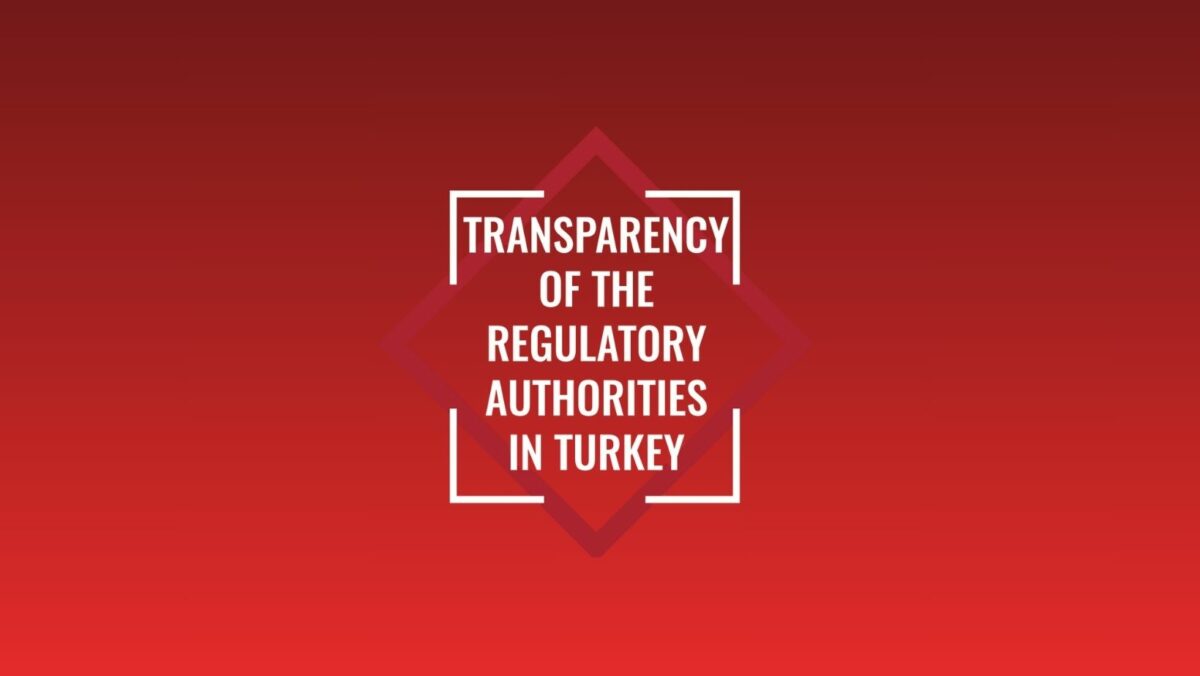Although this study is dedicated to the transparency of competition investigations in Turkey, it concerns issues highly relevant to other legal systems. Transparency is an essential element of rule of law since transparent, clear and consistent rules of law and practice create important conditions for efficient protection of rights of citizens. Transparency of the enforcement process of competition helps to establish the balance between the needs of interference of State into economic activities of undertakings, on one hand, and protection of economic freedoms, on the other. Transparency facilitates the access to important economic and legal information, clarity of regulations and predictability and consistency of administrative decisions. At the same time, ensuring transparency of competition investigations is not an easy task because it is linked with certain inevitable discretion of administrative bodies in the decision making procedure and protection of confidentiality of economic data of enterprises. Research conducted by the authors of this complex study shows that competition investigation in Turkey is facing similar problems as the competition investigation and enforcement in the European Union and the EU Member States: accessibility of investigation information, predictability and consistency of competition enforcement practice, etc. It is linked with the fact that that Turkey has chosen the same model as the model of competition law of the European Union and is transposing the rules of the EU competition law into Turkish national legal system. The European Commission in Turkey 2016 Report concluded that Competition Authority’s enforcement capacity is adequate and implementation of competition law is overall effective. The authors of this study also found that the legislation of competition and the Competition Authority are quite transparent in comparison with other fields of law and agencies in Turkey. At the same time, the study shows some uncertainty concerning accountability and predictability of the enforcement of competition regulations in Turkey. On the basis of the findings of this study, some recommendations that would improve the transparency of investigation processes are formulated.
Research made by Murat Çokgezen, Ali Ilıcak and Fevzi Toksoy in collaboration with Bulut Girgin is devoted to transparency of regulations in the field of competition in Turkey in general. It is also specifically focused on two questions: first, how rules and policies to sustain competition are clear, open and accessible; and second, on transparency of the investigation process. The result of research is an interesting and comprehensive study which is no doubt the result of an extensive analysis. The survey was conducted among staff members of the Turkish Competition Authority, lawyers, academics and other legal experts involved in competition law and practice. Respondents were asked to evaluate competition law applications in general and the transparency of the investigation process in particular. Special attention was given to the opportunities of the parties to be heard or to present their observations and information to the Competition Authority.
One of general findings of this survey was that transparency is a universal value and that all competition authorities pay attention to it. Another important finding was the compatibility of transparency practices in countries with different systems. The survey results indicate a general consensus that more transparency would allow more effective competition regulations, and the boundaries of transparency end where the principle of confidentiality begins. In Turkey, as the study shows, one of the most important problems in the functioning of these regulatory laws and agencies, within an institutional structure that does not support these laws and agencies, is the emergence of differences between written rules (de jure) and the rules in practice (de facto). Turkey’s performance on the rule of law in general, and specifically with regard to regulations, is changing for the worse. These characteristics make Turkey a country that deserves to be analysed within the context of regulations and transparency in general and transparency in general, and the transparency of competition investigations. Transparency in general refers to the availability to the public of information on competition laws and guidelines, investigation processes and practices, investigation timelines and agency decisions. From this perspective, the study raises the questions whether undertakings could achieve clear, open and easy access to information about the compatibility with the current competition regulations of the actions they have already carried out or are planning to do and, if not, what the consequences would be. The investigation of specific transparency is related to the transparency of the process following the decision of a competition authority to open an investigation. The answers of the participants of survey indicated that the Competition Authority is less transparent in investigation-specific issues than in general issues. In other words, the Authority is more generous in informing the public in general, but when an investigation is initiated, it does not demonstrate the same level of transparency. Within the context of this section, respondents attributed the highest score (3.56/5) to the Authority in the statement ‘agency discloses the legal basis of the possible violation under investigation and applicable legal standards for the investigation to the parties’ and the lowest score (2.37/5) in ‘agency’s disclosure of the economic theories of harm under consideration to the parties under investigation’. On the other hand, the disclosure of economic theories of harm is a difficult task because in competition law and practice the evidence of harm is not needed to prove an infringement: certain forms of collusion between undertakings can be regarded, by their very nature, as being injurious to the proper functioning of normal competition. It is established case-law in many jurisdictions, and first of all in the EU, that there is no need to take account of actual effects of infringement once it is apparent that its object is to prevent, restrict or distort competition within market.
Competition lawyers, consultants and interested academics who were interviewed within the scope of this study expressed their opinion that, despite the fact that competition regulations are transparent in comparison with other fields of law in Turkey, problems occur in the implementation processes.
Interesting point of study is that in the process of investigation there is no clear indication as to which concrete factors should be taken into account regarding the initiation of an investigation/secondphase review following a decision on a preliminary investigation or a merger/acquisition filing. The authors also stressed that the standard of evidence in the decision-making process of the Competition Board when assessing whether to launch a preliminary investigation, an investigation, or when taking a merger filing into a second-phase review, is not clear. Maintaining a high level of transparency in Competition Board investigations is of particular importance in ensuring fundamental right to a fair trial. Study showed the necessity of sharing of preliminary investigation reports with the undertakings for the purposes of ensuring the right of defence and to avoid that first written defence becomes a formality rather than an important stage of the investigation. Authors underline that it is extremely important to share with the parties this research including economic analysis forming the basis of the Competition Board’s decisions in order to be transparent and objective, as well as to ensure undertakings’ rights of defence. However, in practice, it is observed that the analysis technique and sets of data have not been shared with the parties in some investigations and/or final examinations. Study contains interesting and important analysis of regulations and practices concerning confidentiality, timing and length of investigation procedure, leniency and imposition of fines. Study of transparency of competition investigations in Turkey very well reflects the main points the development of competition regulations and competition enforcement in Turkey, and general problems of transparency which are typical also to other legal systems based on the model of competition law of the European Union.
Prof. Dr. Vilenas Vadapalas
Former Judge of the General Court of the European Union





